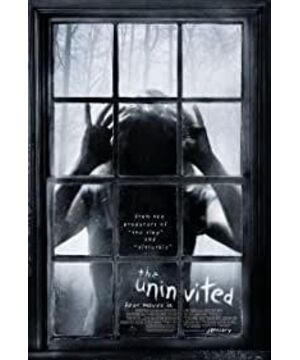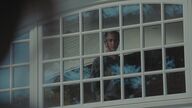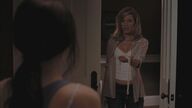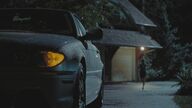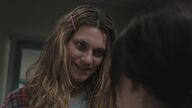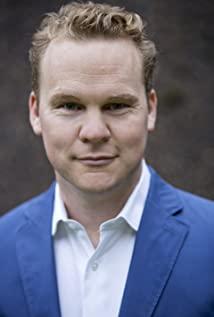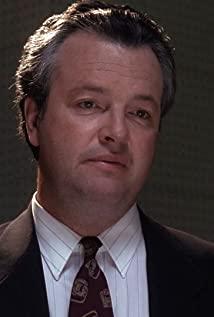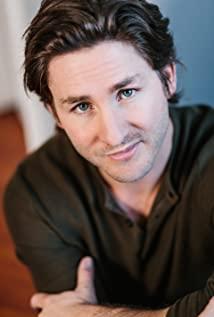Regarding the plot of "Uninvited", we can apply the current fashionable sentence pattern: "Uninvited" did not tell you, Jung and Lacan told you. Therefore, Carl Gustav Jung's "Personal Mask" Persona and Jacques Lacan's "Mirror Theory" Theory of Mirror Image, in this movie, lead the category. As Lacan said, "Desire is the desire for the desires of others. The'self' realizes its self in the'other'." The protagonist of the film, Anna, practised this sentence. At first, she projected her desires on her sister (evil); later, she alluded her desires to her boyfriend's arms (positive); finally, these two desires merged into her desire for "stepmother". She has completely become a captive of desire. Before and after, she put the "personality masks" of others on her face one by one. As Jung said, "The personality mask at the outermost layer of the personality conceals the true self, making the personality an illusion, acting in accordance with the expectations of others, so it is not inconsistent with his true personality."
So, how does "Uninvited" perform these obscure theoretical analyses? Quite simply, the visible "mirrors" and "peep shots" everywhere in the film, moisturizing things silently use the unique attributes of the film to insinuate these philosophical propositions that could only be written on the manuscript paper. Ingeniously, the director played a "game in the mirror" with the audience at the beginning of the film. Anna returned home, lying on the bed happily, with the mirror in the depths of the frame, against the wall; then, the next shot was a cross-axis shot, and the audience saw Anna through the mirror. Here, the director uses the mirror to blend the audience's unconscious creative consciousness and Anna's desire when watching the movie. Correspondingly: At the end of the film, when Anna sees her father and her "stepmother" through the "peeping lens", Anna's desire is projected, and she has a clear view. The audience, through these "peep shots" once again, together with Anna, becomes a participant of desire. In addition, Anna saw her sister Alex when staring at her own shadow; Anna looked at the mirror and blamed herself while talking to herself; Anna stared at her "stepmother" in the mirror; both were excellent "mirror theory" The image expression.
Regarding the truth, Anna actually knew it a long time ago. She evaded the truth of the mistaken killing of her mother and sister that night in a way of "selective amnesia". Even the boyfriend who knew the truth were killed together. Similar to the narrative structure of "Rose, Red Lotus", although "Uninvited" has diluted the sorrow of the girl's Huaichun, it gives the film an expression of "personal personality". The application of the grass snake gray thread is evenly divided compared to "Rose, Red Lotus". At the same time, "Rose, Red Lotus" is infiltrated in the depths of the image, and it has become the unique "increasing climax" of American traditional thriller or horror film in this "Uninvited". What is counter-traditional is that the director sets the tone of the whole film on the "degradation" of personality. At the beginning, the overhead shot of Anna leaving the psychotherapy center (similar to the super-high overhead shots commonly seen in Hitchcock movies); at the end, Anna is holding a sharp-edged ultra-low camera. One high and one low, all the words felt pale in front of such a lens.
In the end, let's take a look at the climax of this film: when Anna's father yelled at Anna about Alex's death. Step by step, Anna stared at her elder sister, who was gradually backing away, until... she saw herself in the French window (overexposure, positive and negative). With the symphony sonata (looks like Mozart's "Requiem", look for the master), the strongest sound of the film finally appeared. So far, Anna's "personality independence-personality split-personality reorganization" can be expressed through images. Because she proudly said at the end of the film: "I did what I didn't finish." We can clearly see that she completely walked out of the shadow of killing her mother and sister by mistake, and entered a complete conjecture. world.
As for the "scary" aspect, "Uninvited" uses the current fashionable "tension" soundtrack to interpret it. "String-Mute-Strong", between ups and downs, fully mobilizes the audience's psychological expectations. In any case, whether Jung’s "personality mask" or Lacan’s "mirror theory", "Uninvited" is just another verification of Robert Hughes's words, "People take their history and beliefs , Attitudes, desires and dreams are remembered in the images they create." That's it. In addition, this is only the first feature film of the Gade brothers.
View more about The Uninvited reviews


